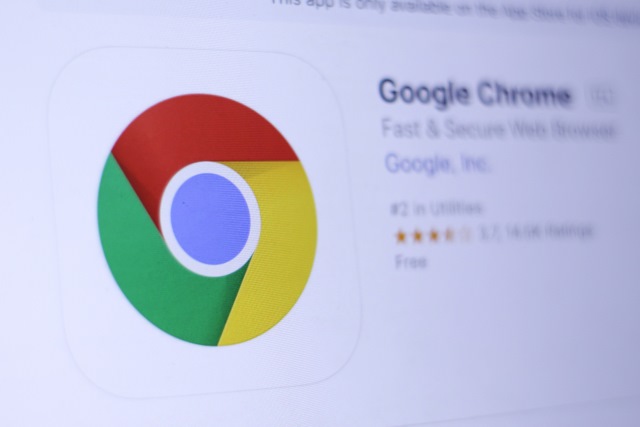
Google pushes out urgent Chrome update to patch actively exploited zero-day vulnerabilities
Users of Chrome are being urged to update their browsers as Google is rolling out a patch for two serious zero-day vulnerabilities, one of which is already being actively exploited.
The Chrome security team says that both vulnerabilities are use-after-free security issues which can be used to exploit arbitrary code. One vulnerability exists in an audio component of the browser, while the other can be found in the PDFium library. The Windows, macOS and Linux versions of Chrome are all affected.

Mozilla is dropping support for sideloaded extensions in Firefox
Mozilla is clamping down on browser add-ons in Firefox, and has announced that it is discontinuing sideloaded extensions in the browser.
The reason given for dropping support is that Mozilla believes that sideloaded extensions cause problems for users, and also that they do not offer users enough control. The company has set out details of the timetable for introducing the new policy.

Firefox 70 unveils major privacy reporting tools, promises further performance improvements
Mozilla has released Firefox 70.0 for desktop, along with Firefox for Android 68.2 and Firefox ESR 68.2.0.
Despite the landmark version number, Firefox 70’s most visible change is a refreshed icon and new welcome screen. Better support for your OS’s system dark mode is also unveiled, while Enhanced Tracking Protection (ETP) has now been made the default for all platforms and users.

Cloud platform allows graphics-intensive apps to be delivered from the browser
Despite the fact that businesses are migrating to the cloud, most have desktop applications they still rely on. In many cases these are graphics intensive, like CAD or video editing, requiring GPU support.
Virtual application delivery platform Cameyo is releasing an updated version with support for GPU-accelerated applications, allowing them to be delivered from the browser.

BullGuard launches new internet security range
BullGuard is launching its range of 2020 security products which include a new Secure Browser and machine learning capabilities.
The 2020 product suite also now enables direct integration with BullGuard VPN to ensure users' privacy when connecting to public Wi-Fi.

Mozilla accelerates Firefox to a four-week release cycle
If you're the impatient type, the current six to eight weeks between major new builds of Firefox may have been agonizing. Mozilla feels your pain, and it is stepping things up a notch.
Eager to get new features out to users faster, Firefox's release schedule is being accelerated significantly. The change isn't happening immediately, but from the first quarter of next year, you can expect to see a major new build of Firefox every four weeks.

Chrome 77 makes it easy to send tabs from one device to another
With the release of Chrome 77 -- which is rolling out right now to desktop and mobile platforms -- Google just made it a whole lot easier to send tabs between devices.
If you're reading a website on your laptop and want to finish off a story on your journey to work, there's no need to email a link to yourself anymore. Now you can easily bounce an open tab from your computer to your phone, from your phone to your computer, or between two computers -- all it takes is a few clicks.

Vivaldi launches its first mobile web browser for Android
Norwegian-based Vivaldi Technologies has released its first mobile web browser: Vivaldi Beta 2.7 for Android. This little brother to Vivaldi for desktop shares its aim of offering users as much control over the browser’s look and functionality as possible.
Despite the 'beta' tag, Vivaldi for Android is fully featured from the off. While lacking some key elements likely to appear in future releases, such as support for add-ons, it’s fully functional and supports key elements such as panels and Vivaldi accounts for syncing.

Firefox Quantum 69 strengthens default anti-tracking protection, can block all autoplay content
Mozilla has released Firefox Quantum 69.0 for desktop, along with Firefox for Android 68.1 and Firefox ESR 68.1.0.
The new release switches on Enhanced Tracking Protection features by default, extends block autoplay to cover all videos (not just those with sound) and improves performance on Windows 10 machines. The Android release marks the browser’s move to the ESR channel.
O&O BrowserPrivacy will securely wipe your browsing history
Browse the internet and you’ll build up an offline database of all the sites you’ve visited, the type of products that interest you and your hobbies and interests. Ads targeting these interests will track you across various websites.
Most modern web browsers can block trackers and enable you to delve into your browsing history and quickly delete the information from your devices. But, has it really been deleted? Any computer expert would be able to retrieve some of this data if necessary.
Chrome 76 arrives, blocking Flash and making paywalls easier to bypass
Google has released Chrome 76 for Windows, macOS and Linux. As expected from the preview releases, this version of the browser brings a couple of important changes: Flash is now blocked by default, and Incognito mode detection is also blocked.
The blocking of Flash will be welcomed by many, and -- once word spreads about what the implications are (namely that it makes it far easier to get around paywalls) -- the same is likely to be true of the changes to the detection of Incognito mode. The changes have been welcomed by privacy and security advocates.

Google boosts Chrome bug bounties
Bug bounty programs have become a popular way for companies to unearth security issues in software and address them quickly. Google is no stranger to such programs, and it has just announced massive increases to the payouts made for finding vulnerabilities in Chrome.
Some rewards have doubled while others have tripled, taking the maximum compensation for reporting a security flaw in Google's web browser -- and other Chromium-based browsers -- to an impressive $30,000.

Firefox Quantum 68 and Firefox ESR 68 released with focus on add-on management improvements
Mozilla has released Firefox Quantum 68.0 for desktop, along with Firefox for Android 68.0 and Firefox ESR 68.0.
The new release promises improvements to extension discovery and security, improves dark mode in reader view, widens its protections against cryptomining and fingerprinting, and adds BITS update support for Windows, allowing Firefox to update even when the main application has been closed

Firefox embraces Microsoft BITS to install updates
Starting with Firefox 68, Mozilla's web browser began to use Microsoft BITS (Background Intelligent Transfer Service) to deliver updates -- the same technique that is used by Windows Update.
With the arrival of Firefox 70, BITS will be utilized with a dedicated update agent in place as a proxy rather than simply being part of the browser itself, allowing updates to be more easily installed.

Vivaldi 2.6 promises protection against abusive ads, expands profile management tools
Challenger web browser Vivaldi 2.6 has been released for Windows, Mac and Linux, promising protection against abusive ad practices.
Version 2.6 also adds additional ways of customizing user profiles, introduces a filter for browsing saved passwords, implements support for Razer headphone devices and continues to revamp the user interface with several welcome minor tweaks.
